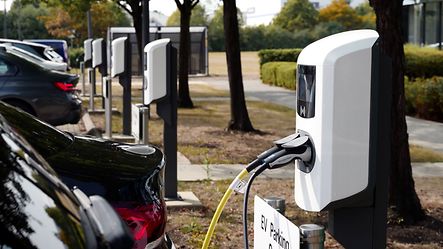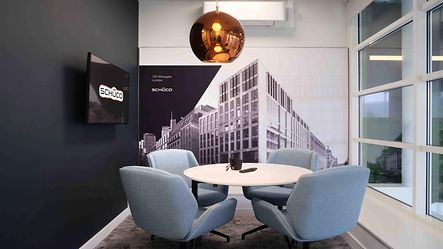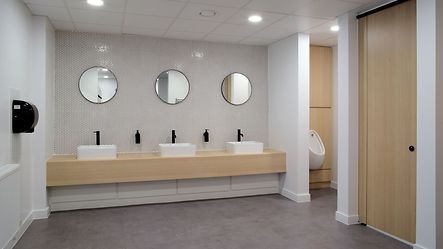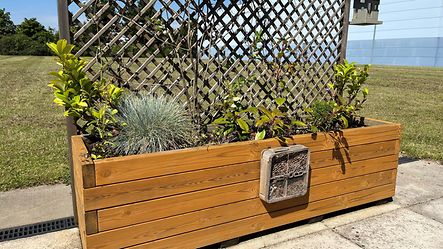Operational Excellence: Our Journey to Sustainable Practices
As an organisation we take seriously our responsibility to operate sustainably. Our Carbon Control programme has enabled us to work with our partners to reduce the carbon footprint of the Schüco systems employed in construction projects.
Behind the scenes we’ve also made huge strides in reducing the Scope 1 and 2 emissions associated with our UK operations. We began tracking the carbon emissions associated with our energy use and business travel in 2021. In the two years since, the initiatives we have implemented enabled us to reduce our total emissions by 28%.

Reducing energy usage
One of the most significant investments we’ve made to reduce our operational carbon emissions was in updating our Milton Keynes HQ and installing a new building management system.
This new building management system has enabled us to make a significant reduction in the amount of energy used to run our office and warehouse. The system monitors the temperature in different parts of the building and regulates the heating and cooling systems for maximum efficiency. We also installed a fresh air system to provide a positive clean airflow throughout the building. 100% of the electricity we use on site comes from renewable sources.
We installed ten EV chargers in our staff car park to power our company cars which are all either hybrid or fully electric. We also allow employees to use the electric charging points for their own cars for free, which we believe has encouraged electric car use among our staff. In the first half of 2024 the EV chargers saved 9 tonnes of CO2 emissions.

Refurbishing for energy efficiency

In addition to installing a new building management system, the refurbishment of our offices incorporated a number of other sustainability initiatives.
We are mindful that hybrid working can mean there are days when some parts of the office are sparsely populated or empty, so we monitored the office population to determine if offices were being used efficiently in terms of energy use. This led to the relocation of some teams to other parts of the building to avoid instances of lighting and heating a large office space that regularly had only a few people in it.
To further reduce energy usage, we upgraded our lighting system to incorporate timed and motion activated lights in offices, meeting rooms and toilets, so if no one is in the room the lights are not on.
On the roof of the building we have a bank of photovoltaic panels. We’ve had them for ten years and as part of the project these panels were completely refurbished to ensure maximum efficiency. They now generate an average 5000KWH per month.
Water, waste and recycling
We didn’t only focus on energy usage, however. We also reduced our water usage by 30% by adding eco-flushing to all the toilets in the building.
We overhauled our waste and recycling practices too, to ensure that all cardboard, plastic and wood is recycled with none going to landfill. This approach was carried through to our office refurbishment, with 90% of everything that was removed from the building being recycled.
We were also mindful of the sustainability credentials of any new additions to the office during the refit, for example the carpet tiles throughout the offices are made of recycled material.

Biodiversity

Turning our attention to our grounds, we decided to improve our immediate local environment with the creation of a wildflower meadow. We planted 1,700 wildflower plants to create a pollen source for bees, butterflies and other pollinators, along with bee and bug hotels to help boost biodiversity.
Our journey towards sustainability is far from over, but the progress we’ve made demonstrates our unwavering commitment to reducing our environmental impact, with every step we take bringing us closer to a greener future.